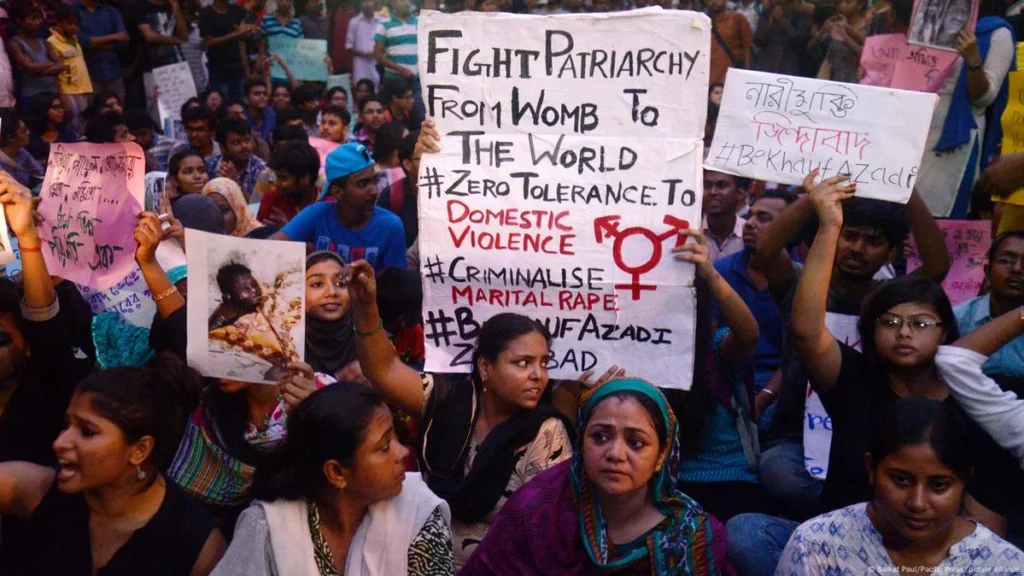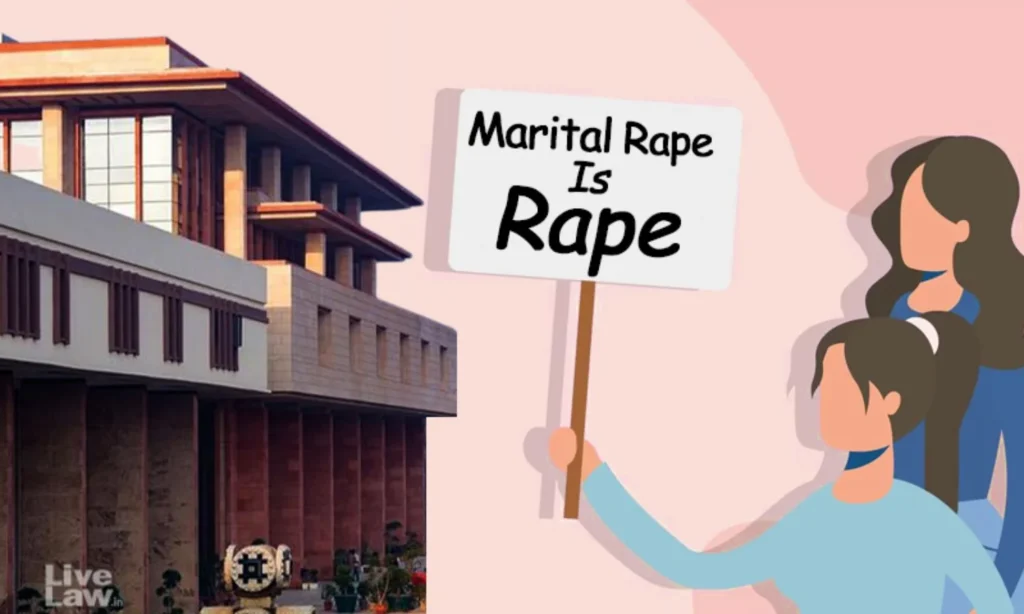The Controversial Verdict That Shook the Nation
A recent court ruling in India has reignited the debate on marital rape and its legal status. A high court in Chhattisgarh acquitted a man previously convicted of rape and unnatural sex with his wife, citing the fact that marital rape is not recognized as a crime in India.
The decision has sparked nationwide anger, with activists, lawyers, and gender rights advocates calling for immediate legal reforms. The case has once again highlighted how India’s legal system fails to protect married women from sexual violence, reinforcing archaic patriarchal norms.
The Case That Led to Public Uproar
In 2019, a lower court had convicted the accused for culpable homicide and sexual violence against his wife, who succumbed to her injuries hours after the assault. Her dying declaration, a crucial piece of evidence, detailed the brutality she endured. Medical reports confirmed severe injuries, but despite this, the high court judge questioned the validity of her statement and overturned the conviction. The ruling has fueled concerns over the judiciary’s approach to marital rape cases, with critics stating that such judgments embolden perpetrators and silence victims.
Legal experts and activists argue that such rulings reinforce the lack of protection for married women in India. Lawyer Sukriti Chauhan described the judgment as legally sound but ethically and morally unacceptable. Another advocate, Priyanka Shukla, pointed out that such verdicts imply that marriage grants absolute rights to husbands, leading to further normalization of violence within marriage. Many have called for widespread awareness campaigns and legal education to address misconceptions surrounding consent in marriage.

Marital Rape and India’s Legal Framework
Unlike over 100 countries that have criminalized marital rape, India remains among more than 30 nations, including Pakistan, Afghanistan, and Saudi Arabia, where forced sex within marriage is not considered a crime. The lack of recognition for marital rape as a criminal offense perpetuates gender inequality and endangers millions of women.
The root of the issue lies in Section 375 of the Indian Penal Code (IPC), a colonial-era law that exempts husbands from being charged with rape unless the wife is below 15 years of age. Despite Britain’s repeal of this archaic law in 1991, India has retained it, citing concerns over marriage stability and false allegations. However, global studies have debunked the fear of false accusations, showing that such claims are rare and that criminalizing marital rape leads to stronger protections for women.
Government and Societal Resistance
Repeated petitions have been filed to criminalize marital rape, but the Indian government, along with several religious leaders and men’s rights activists, has strongly opposed the move. In a recent statement to the Supreme Court, the government argued that such a law would be “excessively harsh” and could lead to disruptions in the institution of marriage. This resistance reflects deep-seated cultural beliefs that prioritize preserving marriage over safeguarding women’s fundamental rights.
Campaigners, however, reject these arguments, stating that laws must evolve to protect women’s bodily autonomy. Ms. Chauhan questioned the reluctance to recognize forced sex within marriage as a crime, emphasizing that constitutional rights apply to all individuals, regardless of marital status. The argument that criminalizing marital rape would destabilize marriages ignores the larger issue—that healthy relationships cannot be built on coercion and fear.
The Alarming Reality of Domestic Violence in India
India has staggering levels of domestic violence, with 32% of married women reporting physical, sexual, or emotional abuse from their spouses. More alarming, 82% of women who have faced sexual violence identified their husbands as the perpetrators. These numbers, however, are believed to be much higher, as many women refrain from reporting due to fear, shame, and lack of legal recourse. The absence of marital rape laws leaves many women trapped in abusive relationships, fearing social stigma and legal inaction.
A survey conducted by the National Family Health Survey (NFHS) revealed that a significant percentage of both men and women believe that a wife must obey her husband in all matters, including sexual relations. Such deeply ingrained patriarchal mindsets further normalize violence, making it harder for survivors to seek justice.

The Road Ahead: Why Legal Change is Urgent
Despite continued public outcry, little progress has been made toward criminalizing marital rape. Activists stress that protecting women should not be seen as a battle against men, but as a fundamental issue of human rights and justice.
As legal debates continue, the latest ruling serves as a grim reminder that urgent legal reforms are needed to ensure that no woman is denied justice simply because she is married. Many believe that the fight for marital rape laws is not just about criminalization but also about creating a societal shift in recognizing consent within marriage. The need for comprehensive legal amendments, combined with gender sensitization programs, has never been more critical.
Until then, campaigners remain committed to fighting for women’s safety, dignity, and the right to say no—even within marriage. Public discourse on the issue is gaining momentum, and with continued advocacy, there is hope that India will join the growing list of nations that recognize marital rape as a grave violation of human rights.


